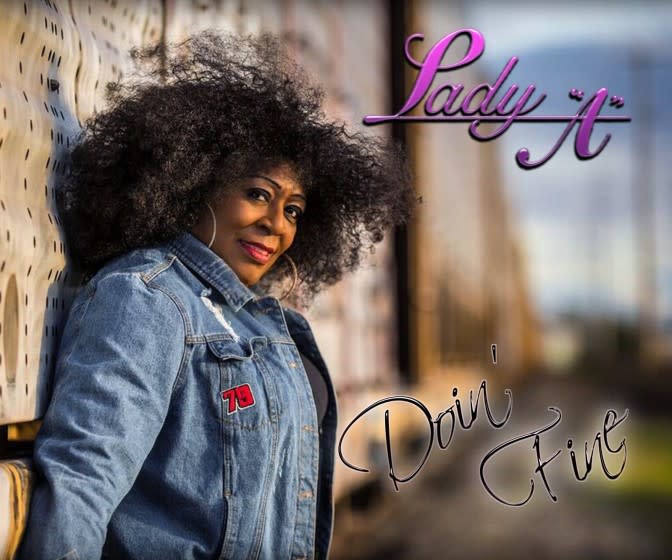Singer Lady A roasts country trio Lady A for 'ironic' trademark lawsuit

Lady A has spoken. And she's not mincing any words.
Veteran blues singer Anita White, who has gone by the stage name Lady A for decades, has responded to the trademark lawsuit filed this week by Lady A, the country band formerly known as Lady Antebellum.
The 61-year-old Seattle-based artist accused the trio of performative activism showcased by rebranding to depart from the word Antebellum's pro-slavery connotations. But, she said, they undercut the move by suing her to share the name. The band was also harshly criticized on Twitter for taking the matter to court.
"Not wanting a name that is a reminder to many Black folks of how so much was taken from us: our freedom, languages, families, and even our names makes sense," White said in an interview with Rolling Stone published Friday. "However, to do so by taking the name on which I, a Black woman, have built my career in the music industry for over 20 years is ironic."
The lawsuit was filed Wednesday in Tennessee after the country trio said negotiations with White broke down. The Grammy-winning group, known for hits including “Need You Now” and “Just a Kiss,” said it was forced to file suit after White demanded an "exorbitant" $10 million to allow them to share the name.
"They want to change the narrative by minimizing my voice, by belittling me and by not telling the entire truth," told Rolling Stone. "I don’t think of myself as a victim, but I’ve worked too long and too hard to just walk away and say I’ll share the name with them. They want to appropriate something I used for decades. Just because I don’t have 40 million fans or $40 million, that should not matter."
Band members Hillary Scott, Charles Kelley and David Haywood and their company, Lady A Entertainment, sought a declaratory judgment that would allow them to use the name without infringing on any of White’s trademark rights. They didn't seek monetary damages through the action, according to a copy of the complaint reviewed by The Times, but asked that they “continue to coexist.”
The band registered the Lady A trademark in 2010 and said that White did not oppose any previous applications for the mark, nor did she seek to cancel any of the Lady A registrations or seek the trademark for herself.
However, White told Rolling Stone that she didn't think their acts could coexist under the Lady A moniker. She said she wanted the money to rebrand herself, but also planned to donate half of the $10 million to various organizations, including the Black Lives Matter advocacy group, as well as a charity for seniors and youth in Seattle, and musicians in need of legal counsel.
White said she has been "erased" by search engines and on streaming services, despite the trio's pledge that it would make its best effort to keep her in the forefront. Fans can't get to her music, she said.
Ideally, she added, the band would change its name instead of simply adjusting it, because they have the money and resources to do so.
"There’s such white privilege that when a person of color, an indigenous person or a Black person calls them on their crap, they’re so offended by it that they don’t see. They’ve been allowed to have that privilege," White told writer Ethan Millman.
"Am I an angry black woman? I’m angry because of the lack of consideration for me and my people. Like I said, this isn’t just about me. I didn’t ask for that money just for me. If I give up my name or share my name, I’d be a sellout to my people," she said.
White did not say how she planned to proceed with the lawsuit. Her representatives did not immediately respond to The Times' requests for comment.

